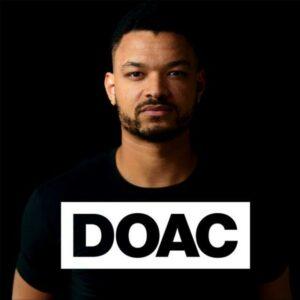
In this episode of Ted Talks Daily, Carlos Rodríguez-Pastor shares his experience of using business strategies to drive solutions to social problems in Peru. He discusses the challenges faced by Peru in improving its education and healthcare systems and how his company, Grupo Intercorp, has played a crucial role in addressing these issues. Rodríguez-Pastor emphasizes the importance of private sector involvement in solving challenging problems and encourages listeners to get involved in making a difference in their communities.
Carlos Rodriguez-Pastor recognized the challenges faced by Peru in improving its education system. Public schools had low attendance, low engagement, and poor quality, leading to the rise of informal private schools. To address this issue, a co-designed system was implemented to target 1.6 million K-12 students. The system aimed to provide affordable education with academic excellence, scalability, and profitability. Trade-offs were made to ensure profitability, such as shared tablets and no swimming pools. This approach has been crucial in transforming education in Peru and making it accessible to a larger population.
The healthcare system in Peru faced significant challenges, with 8 million informal workers having universal healthcare. Grupo Intercorp took the initiative to improve healthcare by acquiring a small chain of pharmacies with 2,300 locations across Peru, including remote areas in the Amazon. This enabled them to provide good quality healthcare to the emerging middle class. Additionally, Aviva clinics were established, focusing on birth as a crucial part of life. Private-public partnerships, such as the bridge built in Aidekipa, have demonstrated the effectiveness of collaboration in addressing healthcare issues.
Grupo Intercorp recognized the limitations of the government in delivering effective solutions, leading them to get involved in areas like education and healthcare. They focused on the middle class, which presented an opportunity for scalable impact. The private sector has an important role to play in solving challenging problems in the country, as they have more staying power and can drive sustainable change. Grupo Intercorp actively partners with the government to create a better country for all.
Carlos Rodriguez-Pastor encourages listeners to identify the most challenging problems in their communities and get involved in finding solutions. By actively engaging in community problem-solving, individuals can contribute to making their country better. He emphasizes the importance of adopting a “C-pedal” mindset, which involves overcoming excuses and challenges to drive positive change. Additionally, the podcast hosts a new show called Fixable, which helps leaders solve workplace problems in one session.
Carlos Rodriguez-Pastor’s talk highlights the power of business acumen in driving solutions to social problems. Through his company, Grupo Intercorp, he has successfully transformed education and healthcare in Peru. His experiences demonstrate the importance of private sector involvement in addressing challenging issues and the need for collaboration with the government. Listeners are encouraged to take an active role in solving problems in their communities and contribute to making their country a better place.